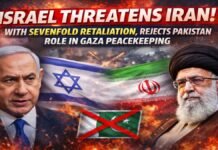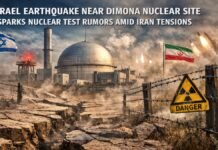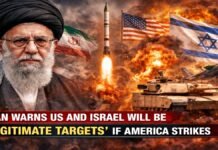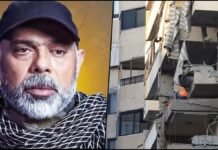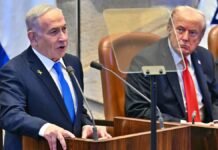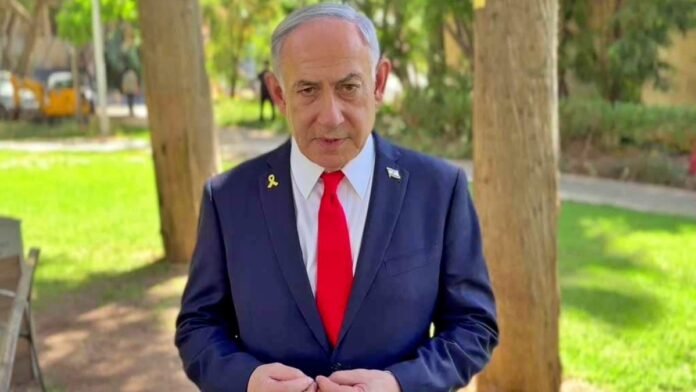
Key Points
- Netanyahu’s Ultimatum: Israeli PM Benjamin Netanyahu reiterates two non-negotiable “red lines” for Syria military-free zone near southern Damascus close to Israeli border, and protection of the Druze minority.
- Syrian Government Accused: Netanyahu accuses President Ahmed al-Shara’s regime of violating these boundaries by deploying troops in southern Damascus and targeting Druze civilians.
- Israel’s Continued Airstrikes: Following heavy air attacks on Syrian military facilities including Damascus Defense Ministry, Israel claims it will maintain pressure to enforce its demands.
- Ceasefire Fragile: Despite a ceasefire agreement in the Druze-majority Sweida province, Israeli airstrikes reportedly resumed, targeting Bedouin tribal militias linked to recent territorial shifts.
- Druze Community at Crossroads: The Druze minority, present in Syria, Lebanon, and Israel, remains a focal point in regional security; Israel emphasizes its duty to protect Druze populations abroad.
Damascus: In a stark warning to the Syrian government, Israeli Prime Minister Benjamin Netanyahu publicly announced on Thursday that Israel has established two critical “red lines” in Syria that cannot be breached under any circumstance. These lines pertain to maintaining a demilitarized zone near the southern outskirts of Damascus adjacent to Israel’s Golan Heights and ensuring the safety and security of the Druze minority in Syria.
Speaking in a fiery video statement, Netanyahu accused Syrian President Ahmed al-Shara’s government of blatantly violating these boundaries by deploying forces in the southern Damascus area, which Israel insists should remain militarily neutral. Netanyahu condemned what he called a “massacre” against the Druze community, asserting,
“We will not tolerate such actions under any circumstances. Protecting the Druze is a non-negotiable commitment.”
Militarization Near Southern Damascus and Its Consequences
Netanyahu’s remarks came soon after intense Israeli airstrikes that struck deep into Damascus, targeting Syrian government installations, including the Defense Ministry. Israeli officials said these strikes aimed to push back Syrian forces and militias that threatened the fragile ceasefire in the Druze-dominated Sweida province and violated the protected zones near the Israeli border.
On Wednesday, the Syrian government agreed to a ceasefire in Sweida and announced troop withdrawals following the Israeli barrage. However, sources including the Syrian state news agency SANA reported renewed Israeli air raids on Thursday targeting military bases held by Sunni Bedouin tribes in the Sweida region, which had recently captured a strategic village from government control.
Conflicting Reports on Airstrikes
While Syrian media confirm Israel’s continued air operations, some Israeli channels suggest the latest Thursday strikes on the Sweida outskirts may have been conducted by other actors, not the Israeli military itself. Regardless, Israeli authorities emphasize their willingness to use military force to uphold their declared “red lines,” especially to protect the Druze minority.
The Druze Factor: A Strategic and Ethnic Flashpoint
The Druze community an ethnoreligious group residing in Syria, Lebanon, and Israel holds a unique geopolitical significance. In Israel, Druze citizens serve prominently in the security forces and the military, underscoring their loyalty to the state. Netanyahu highlighted Israel’s responsibility to safeguard Druze populations beyond its borders, specifically calling attention to threats posed by Syrian government military actions in Sweida and surrounding areas.
Experts note that the Druze minority’s safety has become a key factor in Israel’s intervention calculus inside Syria, intertwining ethnic protectionism with national security strategy.
Regional Implications and Future Outlook
Netanyahu’s declaration signals heightened Israeli resolve to enforce buffer zones along its northern border and protect vulnerable minorities amid Syria’s ongoing civil war and geopolitical turbulence. Analysts warn that repeated Israeli strikes may destabilize fragile ceasefires, potentially prompting escalated militarization by Syria and its allies, including Iran-backed militias.
As tensions simmer, the international community watches closely for signs of further escalation or diplomatic breakthroughs that could ease the volatile situation.
Israeli Prime Minister Benjamin Netanyahu’s announcement of strict “red lines” in southern Damascus and his pledge to defend the Druze minority underline Israel’s proactive posture in Syria’s complex conflict landscape. With airstrikes continuing despite ceasefire attempts, the region faces a delicate balance between military action and political negotiation.



































